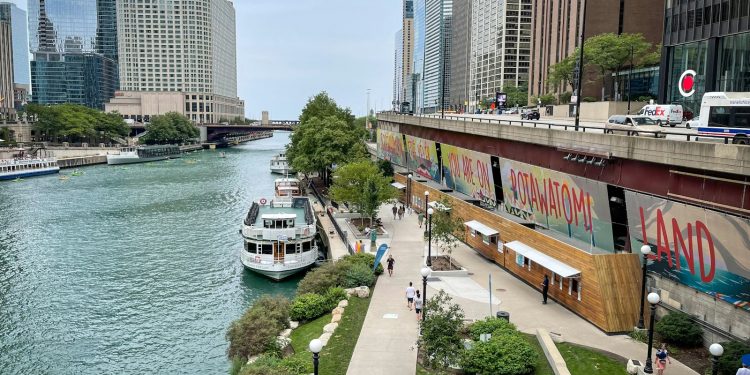Traveling is an incredible opportunity to explore different cultures, traditions, and histories, but to make the most of your journey, it’s crucial to do some research before you go. Cultural attractions are often the soul of a destination—museums, historical landmarks, traditional performances, and local festivals all tell stories that offer deeper insights into the places you visit. To ensure you don’t miss out on these rich experiences, here’s how you can effectively research cultural attractions before your trip.
Start by Defining Your Interests
The first step in researching cultural attractions is to define your personal interests. Culture encompasses a wide range of activities, including art, history, music, food, dance, and local traditions. Think about what excites you the most—do you love visiting museums and learning about history, or are you more interested in traditional food and local markets? Defining your interests will help you focus your research and create a tailored itinerary that matches your passions.
For example, if you’re interested in art, you may want to prioritize visiting galleries, street art districts, or artist workshops. On the other hand, if local traditions fascinate you, focus on finding festivals, cultural performances, or guided tours that delve into the customs of the region. Identifying your interests will help you sort through the vast amount of information available and focus on what truly matters to you.
Use a Variety of Online Resources
The internet offers a wealth of information for researching cultural attractions. Start by using popular travel websites like TripAdvisor, Lonely Planet, and Culture Trip, which provide detailed guides to the must-see cultural sites in each destination. These platforms often feature reviews, recommendations, and useful tips from other travelers, making them a great starting point for planning your cultural itinerary.
Social media is another powerful tool. Platforms like Instagram and TikTok can help you discover hidden gems and local favorites that may not be listed in guidebooks. Search for location-specific hashtags or follow local influencers who often post about cultural spots and events in their area. Pinterest is also a great place to find curated travel boards that can inspire your journey and lead you to cultural experiences that are off the beaten path.
Look for Local Blogs and Forums
Local blogs and travel forums can provide insights that are more authentic and less commercialized compared to mainstream travel websites. Bloggers who live in your destination often write about the cultural attractions they love, including lesser-known places and events that tourists might miss. A quick Google search with keywords like “cultural attractions in [city name] blog” can lead you to some excellent resources.
Travel forums like Reddit (e.g., r/travel or city-specific subreddits) and TripAdvisor forums are also valuable sources of information. You can ask questions, read others’ experiences, and get advice from locals or travelers who have recently visited the destination. These forums are particularly helpful for getting up-to-date information on local events, cultural customs, or seasonal festivals that you might want to attend.
Check Official Tourism Websites
Official tourism websites are often the best places to find accurate and comprehensive information about cultural attractions, especially those run by government or local tourism boards. These websites provide details on museum hours, ticket prices, cultural events, and more. They often feature downloadable brochures, maps, and guides that can help you plan your visit.
Many tourism websites also list upcoming festivals, traditional performances, and seasonal activities, which can help you decide the best time to visit. These websites are particularly helpful for learning about lesser-known attractions, such as small local museums, community events, or historical sites that may not be covered by commercial travel websites.
Use Google Maps for Cultural Exploration
Google Maps can be an excellent tool for discovering cultural attractions near your destination. By searching for terms like “museums,” “historical landmarks,” or “cultural centers” in the area you’re visiting, you can see what’s nearby and read reviews from other travelers. Google Maps also allows you to create custom lists of places you want to visit, which can be a helpful way to keep track of cultural attractions as you research.
Street View is another useful feature of Google Maps, allowing you to explore the surroundings of a particular attraction before you arrive. This can help you get a feel for the neighborhood, find nearby cafes or rest areas, and plan your route more efficiently.
Explore YouTube for Virtual Tours and Documentaries
YouTube is a fantastic resource for getting a preview of cultural attractions before you go. Many museums and cultural centers have their own YouTube channels where they offer virtual tours, behind-the-scenes looks, and interviews with curators and artists. Watching these videos can give you a deeper appreciation of the exhibits and help you decide which attractions to prioritize.
In addition to official channels, many travel vloggers share their experiences visiting cultural attractions around the world. These videos can provide you with a first-person perspective on what to expect, as well as practical tips for navigating the attraction, understanding the exhibits, and making the most of your visit. You can also watch documentaries about the destination to gain insight into its history, culture, and people, which will enhance your appreciation of what you see when you’re there.
Look for Guided Tour Options
Guided tours can provide a wealth of information that you might miss if you’re exploring on your own. When researching cultural attractions, look for options to book guided tours—these could be walking tours, audio guides, or even private tours with local experts. Many museums offer guided tours that provide context, background stories, and unique insights into the exhibits, making the experience much more enriching.
Websites like GetYourGuide and Viator list a wide variety of guided tours, from general city tours to specialized cultural experiences. Reading reviews of these tours can help you decide which ones are worth your time and money. In addition, some cities offer free walking tours led by local guides—these are often tip-based and provide an excellent introduction to the culture and history of a place.
Check Event Calendars for Festivals and Cultural Activities
Many cultural attractions, such as festivals, performances, and traditional ceremonies, are seasonal or occur on specific dates. To make the most of your trip, check event calendars to see what’s happening during your visit. Local tourism websites, cultural centers, and even social media pages can provide information on upcoming events.
Festivals are an excellent way to experience the culture of a destination, as they often involve music, dance, food, and other forms of cultural expression. Whether it’s a traditional harvest festival, a religious ceremony, or a modern art event, attending these gatherings can give you a unique and immersive cultural experience. Make sure to note any ticketing requirements or schedules so you can plan accordingly.
Read Books and Articles About the Culture
To gain a deeper understanding of the cultural attractions you’ll be visiting, consider reading books or articles about the history and culture of the destination. Travel memoirs, historical fiction, and even scholarly articles can provide context that enhances your experience. Knowing the historical significance of a landmark or the cultural background of an art form will make your visit far more meaningful.
Libraries and online platforms like Goodreads can help you find books related to your destination. Consider reading both fiction and non-fiction—while non-fiction can provide historical facts and cultural insights, fiction often captures the spirit of a place and the experiences of its people in a way that is both engaging and informative.
Connect with Locals for Insider Tips
Connecting with locals can give you a unique perspective on the cultural attractions of a destination. Use platforms like Couchsurfing, Meetup, or even social media to connect with people who live in the area you’re visiting. Locals can provide insider tips on the best times to visit attractions, lesser-known cultural sites, and even hidden gems that aren’t listed in guidebooks.
Many locals are proud of their culture and happy to share it with visitors. Engaging in conversations, asking questions, and showing genuine interest can lead to valuable recommendations that will enhance your trip. Some cities also have cultural exchange groups or language meetups that provide an opportunity to learn more about the culture directly from residents.
Create a Flexible Itinerary
Once you’ve done your research, create a flexible itinerary that includes the cultural attractions you want to visit. A well-planned itinerary will help you make the most of your time, but it’s important to stay flexible. Unexpected opportunities—like stumbling upon a local festival or discovering a hidden museum—are part of what makes travel exciting. Leave room in your schedule for spontaneous adventures and don’t be afraid to deviate from your plan if something interesting comes up.
Make sure to group attractions by location to minimize travel time, and consider the opening hours and days of operation, as some cultural sites may be closed on certain days. A flexible itinerary will help you stay organized while allowing you the freedom to adapt and explore as you go.
Take Notes and Stay Organized
As you research cultural attractions, take notes on the information you find. Use a travel notebook, a note-taking app, or even a dedicated Google Doc to keep track of important details like addresses, opening hours, ticket prices, and special events. Having all this information organized in one place will make your trip planning process smoother and ensure that you’re well-prepared when you arrive at your destination.
In addition to practical details, note down any historical or cultural facts that you find interesting. These notes will serve as a reference during your trip and help you get the most out of your visits to cultural attractions. The more prepared you are, the more you’ll be able to fully appreciate the rich culture of the place you’re exploring.
Researching cultural attractions before your trip takes time and effort, but it’s well worth it. With thorough research, you can gain a deeper understanding of the places you’re visiting, discover hidden gems, and create a more meaningful and memorable travel experience. By using a variety of resources and approaching your trip with curiosity and an open mind, you can ensure that your journey is not only enjoyable but also culturally enriching.















Discussion about this post